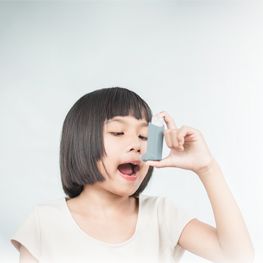
Sharing any good habit with your child requires open communication, patience, and clear instruction. When it comes to your child’s medication, the process is no different. While it’s easier to monitor when a child takes their medication at home, many kids with chronic conditions require access to their medications at all times, including during school hours. Medications such as an Epi-Pen, insulin, or puffers are common for students to have in schools across the country. Here are a few simple practices that should be followed to keep your child safe around their medication.
Good communication - Keeping your child on track with their medication starts when your child is very young and requires you to be informed. Ask your doctor or pharmacist any questions around your child’s medication and have frank, open conversations with your child about their condition and the importance of taking their medication safely and when they are supposed to. Use positive reinforcement (like giving them a healthy treat or a prize) when they learn how and when to take their medication at home, thus building good habits for when they go to school and have to take their medication. Explain their condition and their medication in a way that applies to them. For example, if your child has a nut or a food allergy and requires an Epi-Pen, explain how their body ingests food differently than other people.
Practice good safety for everyone - You will need to inform your child’s daycare provider, teacher, principal, etc., of any health conditions, dietary restrictions, and medications your child has. Familiarize yourself with your child’s school policy regarding whether your child can carry their medication with them or if they require adult supervision when taking their medication. If your child is too young to understand or administer the medication independently, leave instructions and the medication with the administrator to store safely. It’s best to keep all medicine in the original packaging so the child’s name, dosage of medication, frequency of administration, and emergency contacts are properly labelled. An older child can transport their puffers or Epi-Pens in an easy-to-carry fanny pack, for example. If your child is young, store the medication in their backpack and have them leave the medication with their teacher to ensure other kids don’t have access to the medicine. Explaining to your child that their medication is their own and should be kept to themself is a good way to ensure your child does not let friends or classmates get their hands on it.
Stay on track - Keep track of your child’s medication supply and doses to ensure they have enough on hand for chronic conditions such as asthma. If your child’s medication has to be stored at school, check in often with the administrator and inform them and your child about how much medication should be taken at what time, so as not to miss any doses. Let your child know that it’s okay to speak up if something doesn’t seem right with their medication.
If there are any changes to your child’s health during the school year, meet with their teacher or school administrator right away to provide up-to-date instructions. Be informed of who will administer your child’s medication, if needed, and where in school this will take place. Make sure your child is aware of their intake schedule. If there are special activities at school or field trips, ensure your child’s medication is always accessible.
Educating children on when to take their medication today helps put them on the path to healthier choices in the future.
Edwin is the Senior Manager of Pharmacy Operations, Western Canada, for Express Scripts Canada, one of the country’s leading providers of health benefits management services. For more information or tips on maintenance medications and prescription drugs, visit express-scripts.ca. Follow Express Scripts Canada on Twitter @ExpressRXCanada.
Calgary’s Child Magazine © 2024 Calgary’s Child